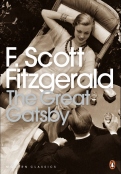Interesting fact: we get the noun litotes from the original Greek word litos, meaning ‘plain’ or ‘simple’. Today, we use the term describe a figure of speech in which an ironic understatement (often containing a double-negative) is intentionally presented. For example:
Nicky Kemp wasn’t unhappy that her Friday afternoon lesson was cancelled.
Friday afternoon lessons can be hard work, particularly towards the end of a long term. So, with this in mind, it makes sense that Nicky wasn’t unhappy to find out that she didn’t have to teach Rhys Daniel and James Haines. However, knowing Nicky as well as we all do, we can rightly assume that this absence of happiness doesn’t fully do her feelings justice. This is litotes at work (it’s a bit like a game): the understatement, because it’s so obvious to us, actually has the effect of intensifying the sense of pure elation that Nicky felt. Here’s another example, this time from a poem written by Andrew Marvell in the late seventeenth-century, called To His Coy Mistress:
The grave’s a fine and private place
But none, I think, do there embrace.
 The speaker of the poem tries to convince his ‘mistress’ to start an affair with him: he encourages her to live in the moment rather than preserve her ‘quaint honour’. The two lines above are taken from the end of the second stanza. In them, he purposefully understates his belief that, after death, only ‘Deserts of vast eternity’ remain (where there, unfortunately, will be no chance of a passionate ‘embrace’). By doing this, the speaker is able to put forward what is, ultimately, a pretty morbid, yet potentially compelling, argument in a fittingly light-hearted manner that doesn’t alter the playfully romantic tone established in the first stanza.
The speaker of the poem tries to convince his ‘mistress’ to start an affair with him: he encourages her to live in the moment rather than preserve her ‘quaint honour’. The two lines above are taken from the end of the second stanza. In them, he purposefully understates his belief that, after death, only ‘Deserts of vast eternity’ remain (where there, unfortunately, will be no chance of a passionate ‘embrace’). By doing this, the speaker is able to put forward what is, ultimately, a pretty morbid, yet potentially compelling, argument in a fittingly light-hearted manner that doesn’t alter the playfully romantic tone established in the first stanza.
Here’s one more example, this time from The Great Gatsby, by F. Scott Fitzgerald:
I lived at West Egg – well, the less fashionable of the two, though this is a most superficial tag to express the bizarre and not a little sinister contrast between them.
 The novel is set in the summer of 1922, on Long Island in New York. We learn that the narrator, Nick Carraway, has moved to the Northeast in order to pursue a career in finance. To this end, he finds a property to rent in the raffish environs of West Egg, an area populated by members of the emerging nouveau riche (including the shady Jay Gatsby himself). Across the bay from West Egg is the much more salubrious and exclusive district of East Egg. In the quote above, Carraway informs us that there is not a little sinister contrast between the two areas. By using this litotic description, he is able to signal his awareness of West Egg’s shortcomings (which reinforces his own social pedigree), whilst not having to make any blunt criticisms. Nicely done, Nick Carraway.
The novel is set in the summer of 1922, on Long Island in New York. We learn that the narrator, Nick Carraway, has moved to the Northeast in order to pursue a career in finance. To this end, he finds a property to rent in the raffish environs of West Egg, an area populated by members of the emerging nouveau riche (including the shady Jay Gatsby himself). Across the bay from West Egg is the much more salubrious and exclusive district of East Egg. In the quote above, Carraway informs us that there is not a little sinister contrast between the two areas. By using this litotic description, he is able to signal his awareness of West Egg’s shortcomings (which reinforces his own social pedigree), whilst not having to make any blunt criticisms. Nicely done, Nick Carraway.
And that’s it for another week. However, to keep you going until next time, why not click on the link below? It’ll take you to an article from the Guardian on how Ed Miliband and David Cameron used litotes in the run-up to the 2015 general election.
TL;DR: Litotes is a figure of speech in which an ironic understatement is intentionally presented.
Thank goodness for this I have now found you here in blogland so much easier than email land. Greatly appreciate literacy shorts much needed for mathser me. J
LikeLiked by 1 person
Thanks, Jacqs! x
LikeLiked by 1 person